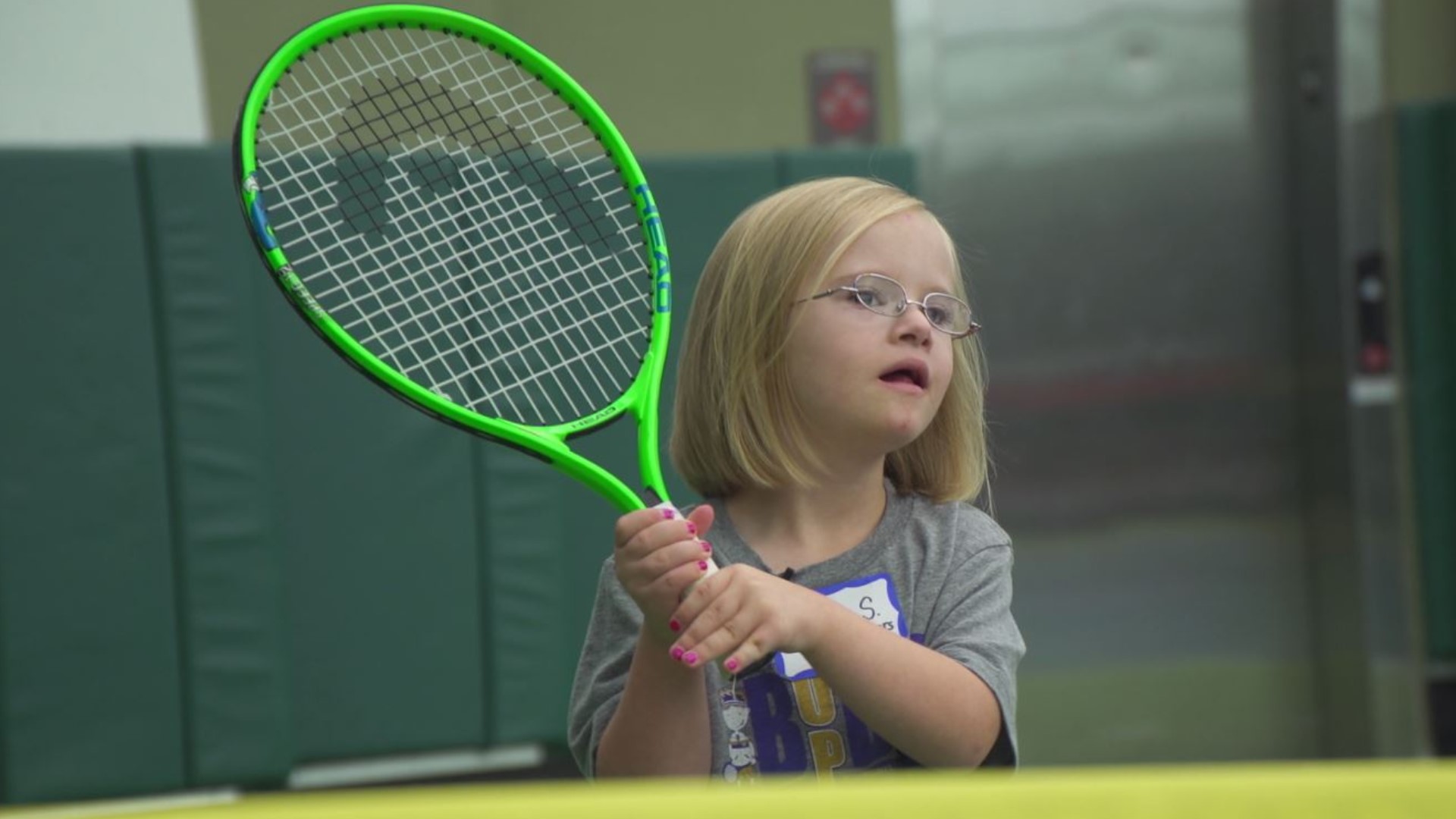PLANO, Texas — Exercise can often be elusive for children with Down syndrome. Giving them something to regularly look forward to is also challenging to schedule.
But a new program in North Texas provides a little bit of both and exposes them to a sport they often don't get a chance to play.
“I found out through a friend of a friend. We’re all in the Down Syndrome Guild. They said, ‘Is your daughter going to play tennis?’ I said, ‘I wish. My son plays, I love tennis,’” explained mother Anice Stephens.
Her daughter Sloane, 7, is finally learning the sport now, in her own right.
“It’s exercise. I take it whenever I can get it for her. And hand-eye coordination. And just learning to follow simple directions with different people – young, older. I like it a lot,” Stephens added.
Sloane is one of 58 athletes in this new program called BuddyUp Tennis. It is designed specifically for children with Down syndrome.
Athletes and volunteers meet every few weeks at LifeTime Tennis in Plano.
“They expect a lot out of our kids which I love. I think, too often, our kids are underestimated and this program, it expects a lot. It teaches them the game of tennis and they have a blast while they’re doing it,” said mother Stephanie Diener.
Plus, it improves their core strength, coordination and confidence.
BuddyUp Tennis started a decade ago in Columbus, Ohio, and this North Texas group marks one of the newest chapters in the country.
Cheryl Halpern saw a national news story about BuddyUp Tennis and then reached out to the founder about starting a program locally. Halpern knows a lot about tennis, but not as much about Down syndrome.
“I called Beth Gibson, the founder, and her first question was, ‘So do you have a child with Down syndrome?’ I said, ‘No, I don’t.’ She goes, ‘A friend, a cousin?’ I said, ‘No.’ And it probably took her about a month before she really believed I was serious and would be committed to this program,” Halpern said.
She has organized 11 clinics since starting the chapter in March.
Athletes pay $15 a session for a T-shirt and their own racket.
But to survive long-term, Halpern said, these athletes need more volunteer buddies and committed donors.
“They can do anything. They just need someone to be able to give them the patience and the help to get there but they can do anything they want,” said mother Debby McGill.
That’s the lesson that children like Sloane can teach – although they might not always be included in life, each clinic they complete confirms they are capable.

